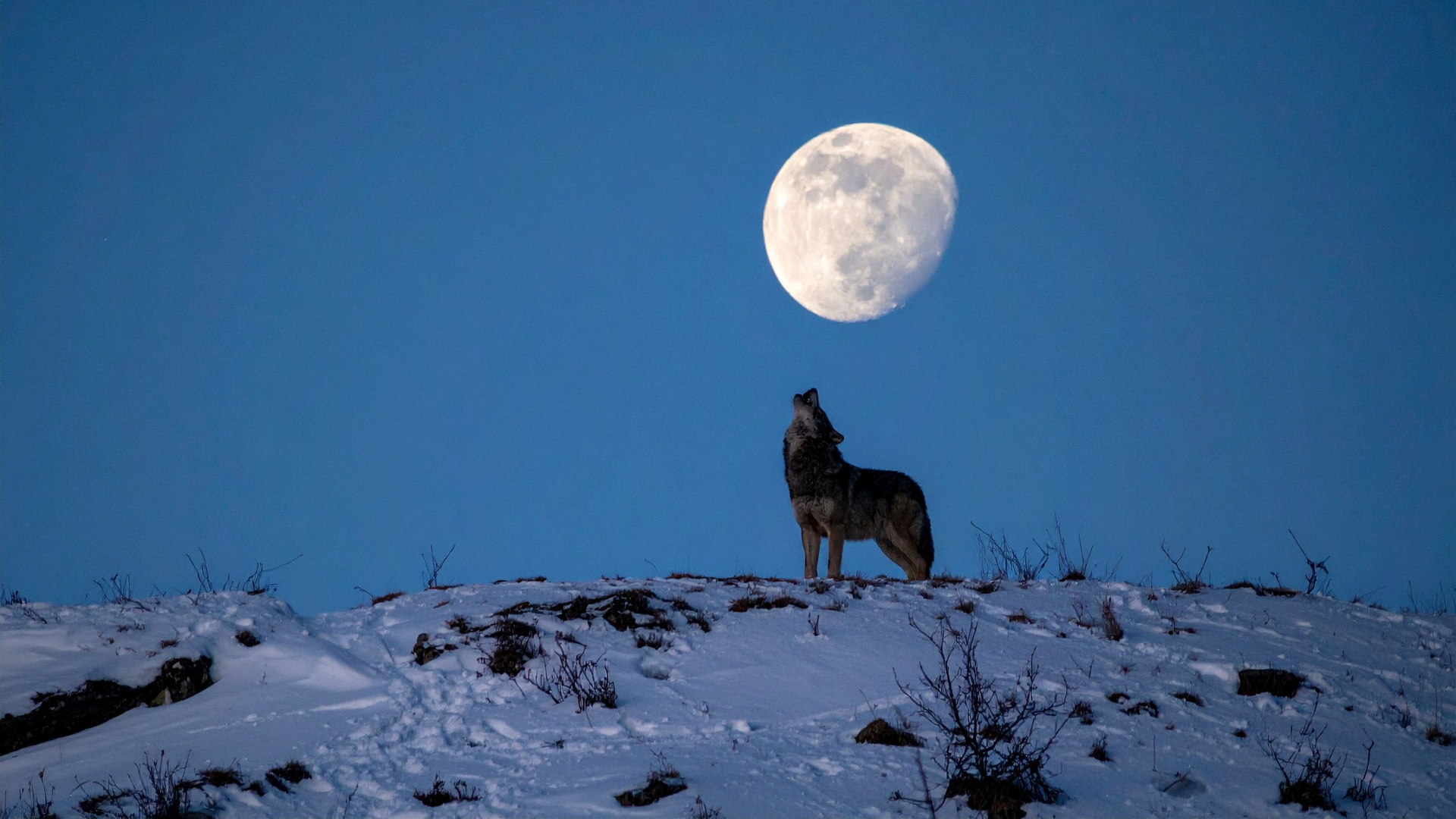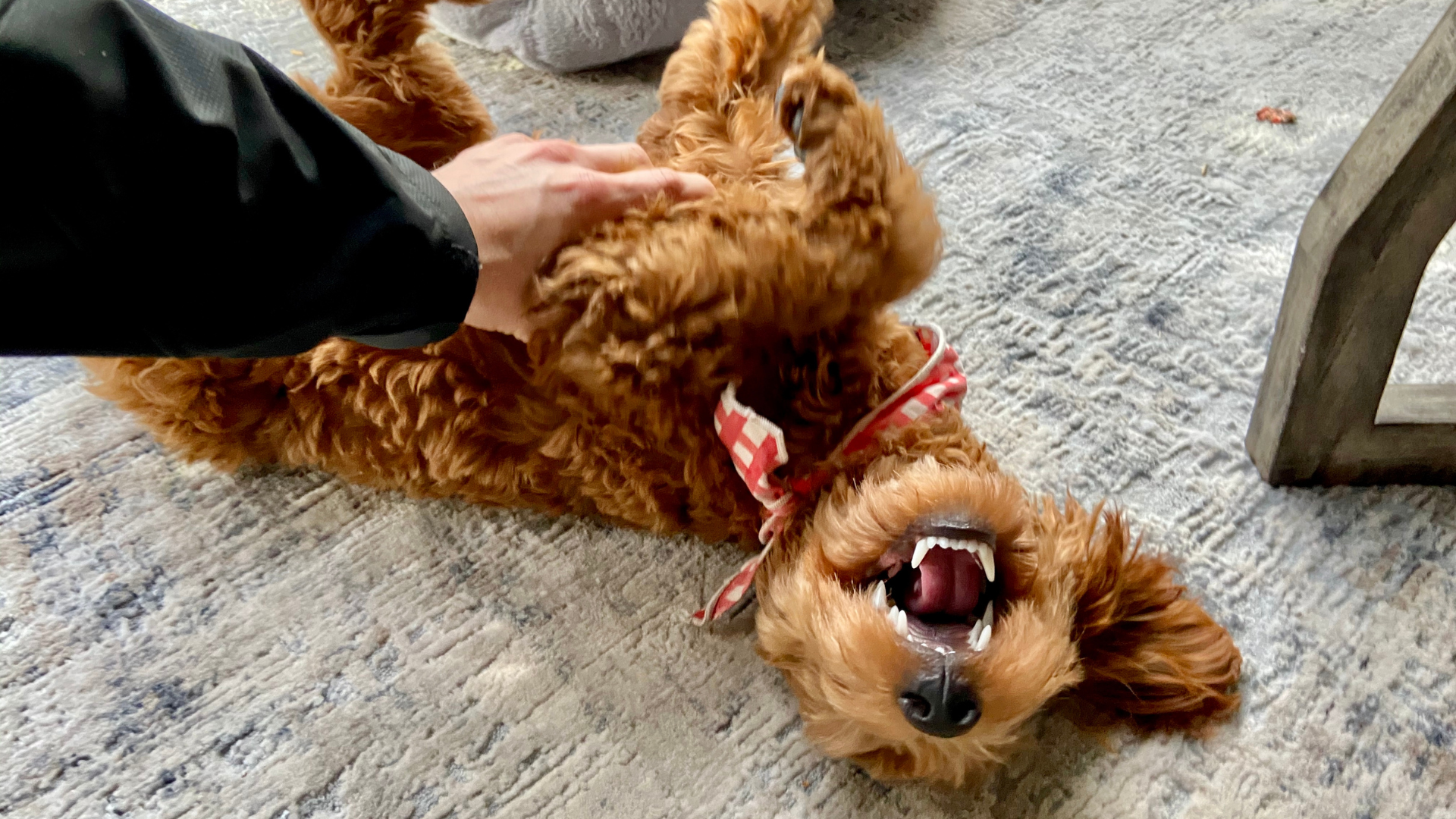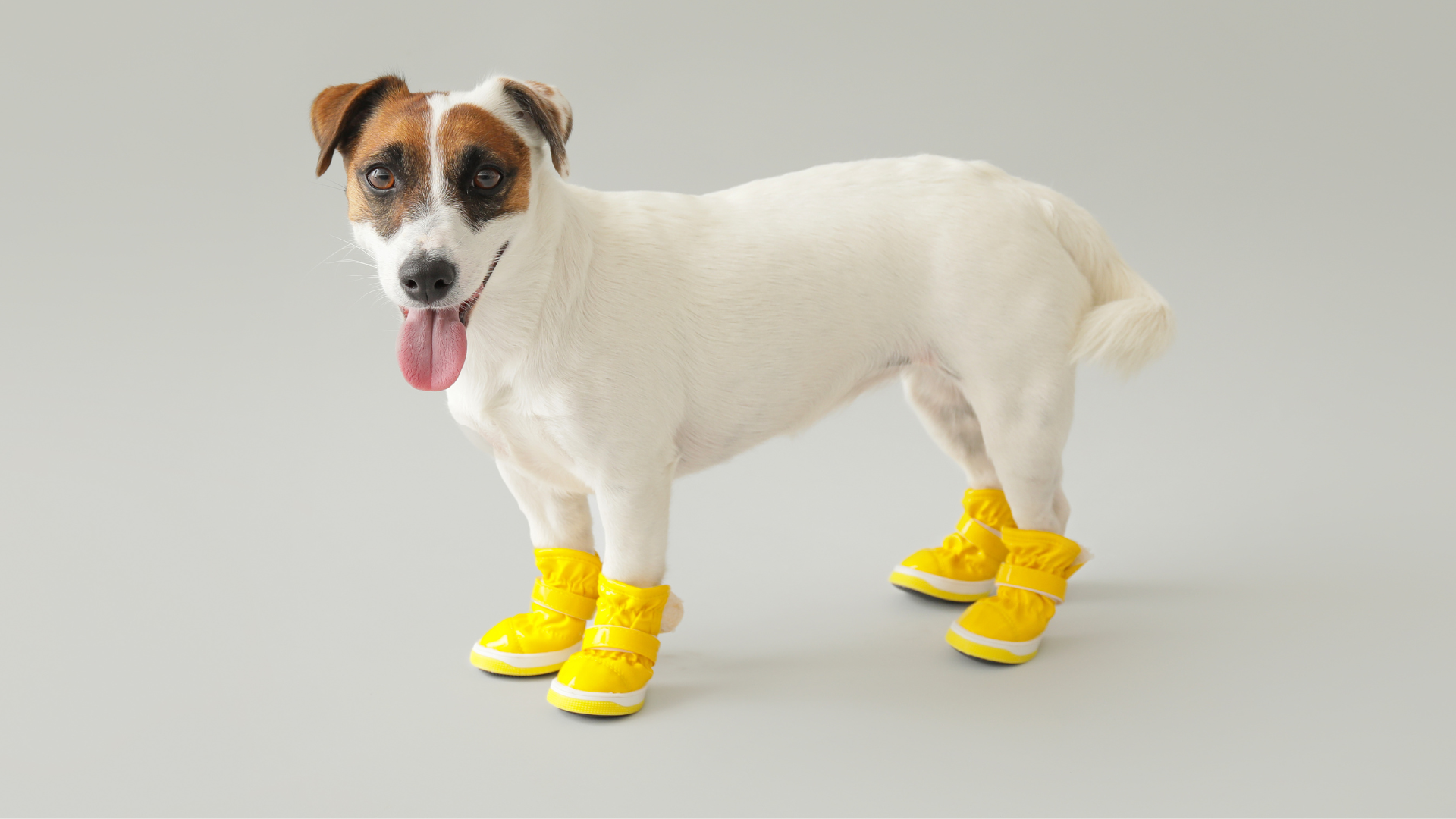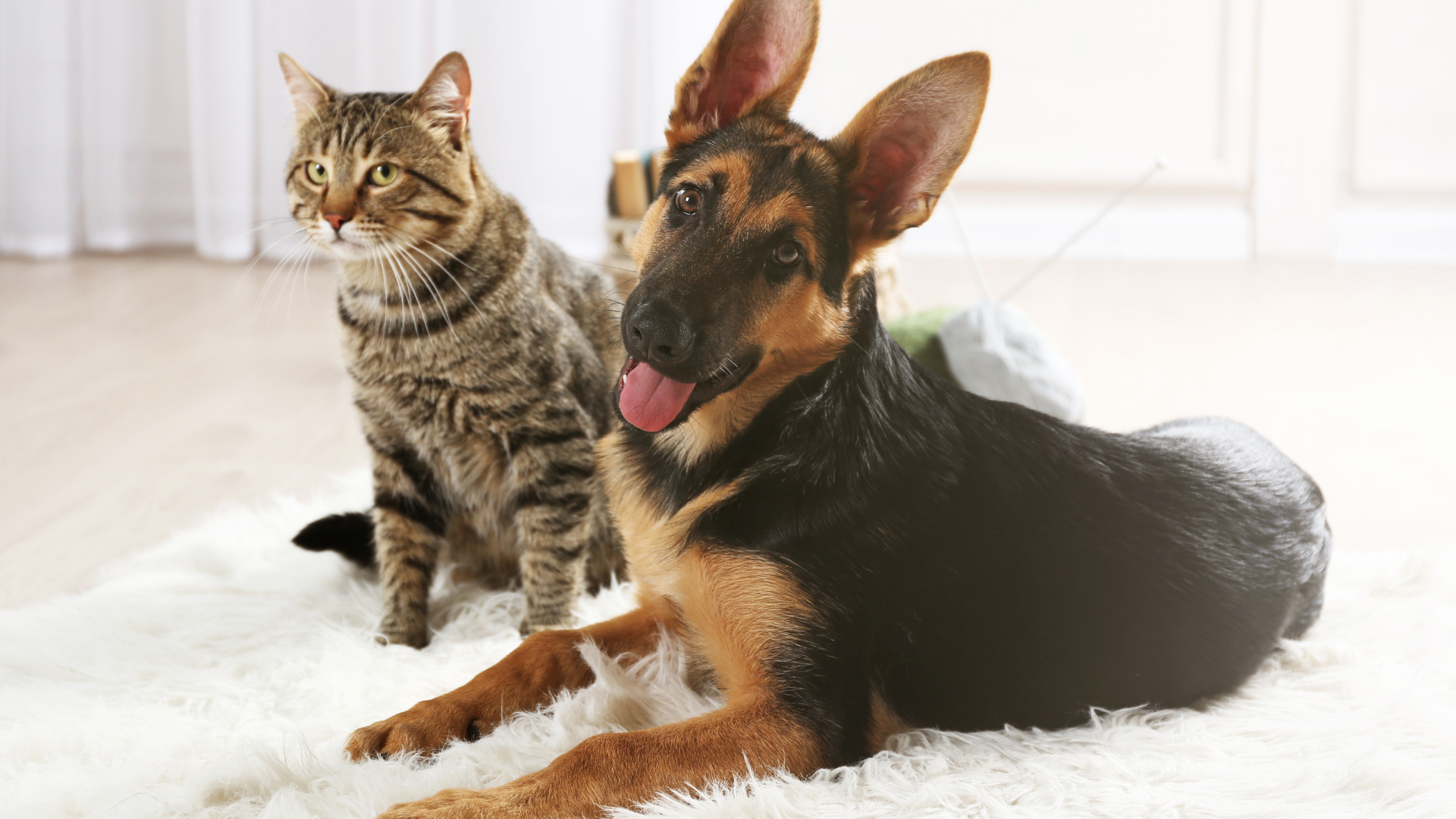Understanding the Howling Behavior in Dogs
Dogs have fascinated humans for centuries, with their mysterious and often amusing behaviors. One behavior that has long captured attention is howling, particularly when it happens during the full moon. Many pet owners have noticed that their dogs seem to howl more at night when the moon is full, prompting the age-old question: Why do dogs howl at the moon?
This behavior, while often perceived as mysterious or even mystical, has a logical explanation rooted in science. Understanding why dogs howl—especially in relation to the moon—requires delving into their evolutionary history, communication methods, and sensitivity to environmental cues. In this article, we will explore these scientific explanations behind the behavior and uncover how the moon might influence your dog’s vocalizations.
Canine Communication: Howling as a Form of Communication
To understand why dogs howl at the moon, it’s important to first consider how dogs communicate in general. Dogs are highly vocal animals, and howling is just one of the many ways they use their voices to express themselves. Along with barking and whining, howling serves as a form of communication with other dogs, their pack, or their human companions.
In the wild, wolves—dogs' closest ancestors—use howling to communicate with their pack members. Howling can serve various functions, such as coordinating a hunt, signaling the location of the pack, or warning of potential dangers. In the domestic environment, dogs have inherited this instinct and will often howl in response to various stimuli, including hearing other dogs howl, feeling anxiety, or even when they are simply seeking attention.
Dogs can also use howling to alert their human companions to something unusual in their environment. This could include a strange sound outside, an unfamiliar person, or even the presence of another animal. When your dog howls at the moon, it may simply be responding to the increased visibility at night or reacting to the environmental cues that are unique to moonlit nights.
The connection between the full moon and increased howling can sometimes be a result of heightened activity in the environment. For example, the brightness of the full moon may make your dog more alert and aware of their surroundings. If your dog is particularly sensitive to light or noise, this heightened sensitivity could trigger howling as a response to what they perceive as unusual activity.
Evolutionary Roots of Dog Howling
The howling behavior of domestic dogs is deeply rooted in their evolutionary past. Dogs are descendants of wolves, and much of their behavior, including howling, can be traced back to their wild ancestors. In wolves, howling serves multiple vital functions, including territory marking, coordinating group activities like hunting, and maintaining social bonds within the pack.
Wolves howl to communicate across large distances, as their vocalizations can carry for miles. This helps them stay connected with their pack members when they are separated. Domestic dogs, while living in homes and often in close quarters with humans, still retain many of these ancestral behaviors. Though the context may be different, the instinct to vocalize—whether to communicate with other dogs or to signal something unusual—remains strong.
Even though domesticated dogs are not likely to use howling to coordinate a hunt or defend territory, they may still howl in response to certain triggers, much like their wild counterparts. A full moon may enhance this behavior simply because it evokes certain responses in your dog’s instincts, even if it is not directly tied to a survival function.
The Moon and Dog Behavior: Does the Full Moon Really Affect Dogs?
For centuries, the full moon has been linked to strange behavior in animals, including dogs. Many pet owners have observed that their dogs seem to howl more frequently or behave differently during a full moon, leading to the belief that the lunar cycle somehow influences canine behavior. But is there any truth to this?
The Influence of Moonlight on Dogs
The most common explanation for why dogs howl at the moon is the idea that the moonlight itself has an impact on their behavior. Dogs have superior night vision compared to humans, and they are often more sensitive to changes in light. The brightness of the full moon could make dogs feel more alert and active, leading them to vocalize more frequently. This increased sensitivity to light could explain why some dogs seem more inclined to howl when the moon is full.
However, scientific studies on the exact relationship between lunar phases and dog behavior have been inconclusive. While some pet owners swear that their dogs are more active and vocal during a full moon, there is no solid evidence that the moon directly causes howling. The lunar cycle does affect the behavior of some animals, particularly those with nocturnal habits, but its direct influence on dogs' howling remains a subject of debate among experts.
External Factors During the Full Moon
One reason dogs may howl more during the full moon is the increased activity and sounds that occur at night. The full moon can make the night appear brighter, which might cause an increase in nocturnal activity. This could include more wildlife moving around, more human activity outside, or other factors that make the environment feel different to your dog.
Dogs have keen hearing and are more attuned to sounds than humans. During a full moon, when the world is quieter and brighter, dogs may become more aware of their surroundings, leading them to howl in response to noises they detect, such as the distant call of another dog, animals moving through the yard, or sounds from outside their home.
Another environmental factor that could contribute to increased howling is the shift in temperature and atmospheric conditions during a full moon. Dogs are sensitive to changes in temperature and pressure, and such shifts could cause restlessness or anxiety, prompting them to vocalize.
How to Manage Your Dog’s Howling During the Full Moon
While howling at the moon is a natural behavior for dogs, it can sometimes be disruptive or annoying for pet owners. Fortunately, there are ways to manage this behavior and ensure that your dog stays comfortable during full moon nights.
Creating a Calm Environment
One way to minimize howling is to create a calm, quiet environment for your dog. If you suspect that your dog is howling due to anxiety or a heightened sensitivity to their surroundings, you can help by providing a designated safe space for them. A cozy crate, a comfortable bed in a quiet room, or even some soothing background noise like a white noise machine can help drown out any sounds that may be triggering your dog’s howling.
Exercise and Enrichment
Dogs that are more active and engaged during the day may be less likely to howl excessively at night. Make sure your dog gets plenty of physical exercise and mental stimulation during the day, which can help tire them out and reduce restlessness at night. You can also provide enrichment toys or puzzles to keep their mind occupied while you sleep.
Consider Behavioral Training
If your dog’s howling becomes excessive or disruptive, you may want to explore behavioral training. Teaching your dog basic commands, like “quiet” or “enough,” can be helpful in curbing unwanted vocalizations. Positive reinforcement methods, where you reward your dog for calm behavior, can also be effective.
After a workout or a long walk, it’s important to freshen up your space. Using Good Natured Brand’s Carpet Deodorizers can help eliminate any odors that might build up from your dog’s behavior. Similarly, using Laundry Powders can help keep your dog’s bedding and your workout clothes clean and fresh.
By understanding why dogs howl at the moon and providing a calm, structured environment, you can help manage this behavior while strengthening your bond with your furry companion.
The Role of Light and Sound in Howling Behavior
While the full moon may be the most obvious celestial event linked to increased howling, the influence of light and sound in the environment plays a significant role in shaping canine behavior. Dogs are highly sensitive to changes in their surroundings, especially at night when they are more alert and attuned to their environment. The increased brightness during the full moon and the heightened level of noise from the outside world can contribute to your dog’s instinct to vocalize.
Light Sensitivity in Dogs
Dogs' eyes are adapted to see well in low light conditions, which makes them more sensitive to the moonlight than humans. The full moon, being much brighter than the typical night sky, may stimulate your dog’s senses, prompting them to become more active or vocal. As they notice more movement outside, whether from animals or people, dogs may start howling to communicate, alert others, or simply express curiosity about the night’s activities.
Your dog might also be more aware of the changes in the environment during the full moon, whether it's the appearance of wildlife or the sounds carried over longer distances by the moonlight. Even subtle changes in lighting or temperature could trigger howling behavior, making the night feel more intense or exciting for them.
The Influence of Sound
Dogs have superior hearing compared to humans, and they can detect sounds that are far beyond the range of our perception. The sounds at night—whether it’s the howling of other dogs, animals rustling outside, or distant human noises—become more prominent when the full moon casts extra light, allowing sounds to travel farther. This increased auditory stimulation may cause your dog to respond by howling, either as a way of communicating back or because they are responding to something they detect.
Some dogs may be particularly sensitive to certain noises, like sirens, alarms, or the sounds of other dogs howling from a distance. These noises, coupled with the moonlight, might create an environment that prompts your dog to vocalize more than usual. If your dog has an inclination to howl during quieter, more isolated nights, the added visibility and noise from a full moon could push them to howl more frequently.
Psychological and Environmental Factors
While physical and environmental triggers play a large role in when and why your dog howls, psychological factors are just as influential. Many dogs are highly attuned to their emotional state and the energy around them. Understanding how separation anxiety, fear, and even boredom contribute to howling can provide insights into why your dog may howl more during the full moon or at night.
Anxiety and Stress
Dogs that suffer from anxiety or stress may howl to express their discomfort. Anxiety can stem from many sources, including separation from their owners, unfamiliar sounds, or changes in the environment. During the full moon, the heightened activity and changes in light might trigger restlessness in dogs with anxiety, causing them to vocalize more.
If your dog tends to howl more during the full moon, it may be a sign of heightened stress or anxiety. For instance, if there are unfamiliar sounds outside that they can hear more clearly due to the moonlight, it might cause your dog to feel threatened or on edge. Howling can be a coping mechanism to signal distress or to try to gain attention.
If your dog’s howling is persistent or disruptive, it’s important to address the underlying cause. Offering comfort, providing a designated safe space, or using calming techniques like pheromone diffusers can help reduce anxiety. On those particularly loud nights, you can also try using Good Natured Brand’s All-Purpose Cleaner to wipe down your dog’s favorite resting spots and create a calming atmosphere in your home.
Loneliness and Separation Anxiety
Many dogs experience increased howling when they are left alone or feel isolated. Separation anxiety is a common cause of nighttime howling, especially if your dog is accustomed to having company around. The solitude of the night, combined with any anxiety triggered by the moon's changes, could cause your dog to vocalize more. The full moon, with its brighter nights and more activity in the environment, could trigger feelings of loneliness and separation.
If your dog’s howling is directly tied to separation anxiety, they may also engage in destructive behaviors, such as chewing or pacing. In such cases, it’s important to create a calming and secure space where your dog can feel comfortable. Using tools like puzzle toys, calming music, or leaving on a TV or nightlight can help provide comfort during those long nights.
How Can You Manage Your Dog’s Howling?
As a pet owner, it’s natural to want to manage your dog’s howling, especially if it becomes disruptive or frequent. Fortunately, there are several strategies you can implement to reduce howling and help your dog feel more comfortable, particularly during the full moon or other times when they may be more vocal.
Creating a Calm Environment
One of the best ways to manage howling is to ensure your dog feels calm and secure during the nighttime. If your dog is howling due to fear, anxiety, or environmental changes, consider making their resting space more comfortable and soothing. Setting up a cozy, enclosed area like a crate or designated quiet space can help them feel more secure.
You can also consider using calming tools like anxiety wraps, pheromone diffusers, or calming music to create a tranquil atmosphere. By addressing your dog’s emotional needs, you can reduce the likelihood of howling during stressful situations, such as when they are reacting to the full moon.
Exercise and Mental Stimulation
A tired dog is a calm dog, so ensuring that your dog gets plenty of physical and mental stimulation during the day can help reduce nighttime howling. Regular exercise—whether through walks, playtime, or interactive games—can help burn off excess energy and alleviate anxiety. A well-exercised dog is more likely to rest peacefully at night, rather than feeling the need to vocalize due to excess energy or stress.
Mental stimulation is also key to keeping your dog content. Consider using puzzle toys, training sessions, or treat-dispensing toys to keep your dog’s mind engaged. This type of enrichment will not only help reduce howling but also contribute to a well-rounded, satisfied dog.
Training and Positive Reinforcement
Training your dog to stop excessive howling is an effective way to manage this behavior, particularly if the howling is triggered by anxiety or excitement. Using positive reinforcement, such as rewarding calm behavior or teaching your dog specific commands like "quiet," can help break the cycle of howling. Consistency is key in training, and over time, your dog will learn to associate calmness with positive rewards.
In addition to training, making sure your dog’s environment is clean and comfortable is important. After your dog has been active, you may want to freshen up their space with Good Natured Brand’s Carpet Deodorizers, ensuring that their resting area stays fresh and inviting. You can also use Laundry Powders to clean their bedding or toys, ensuring everything remains fresh and pleasant for your dog.
The Role of Howling in Bonding: Strengthening the Human-Dog Relationship
While howling can sometimes seem like an unusual or disruptive behavior, it can actually be an opportunity to strengthen your bond with your dog. Howling is a natural form of communication for dogs, and understanding it can help you deepen your connection with your furry friend.
Howling as a Response to Attention and Affection
One of the reasons dogs howl is to get attention or express their needs. If your dog howls when you're near, it might be their way of communicating a desire for interaction or affection. This is especially true if your dog is looking for companionship during the night or trying to get your attention when you're in another room.
Dogs, like humans, thrive on companionship and interaction. When your dog howls to seek your attention, it may be their way of bonding with you. Responding to this behavior with affection and playtime can help strengthen your relationship. Positive reinforcement plays a crucial role here; rewarding calm behavior and teaching your dog to communicate in other ways can create a healthier dynamic where both you and your dog are comfortable.
Creating Positive Experiences During Howling
Instead of scolding your dog for howling, try to turn it into a learning moment. For example, if your dog howls during the full moon because of restlessness or curiosity, you can redirect their attention by offering a new toy or playing a calming game together. This can help them understand that their behavior can lead to positive outcomes, and it will also help redirect the energy toward something enjoyable.
Training sessions that incorporate positive reinforcement can also be helpful in strengthening your bond with your dog. For instance, teaching your dog to "quiet" on command or rewarding them for being calm during the night can reduce excessive howling while reinforcing a sense of connection and trust.
By maintaining a positive, calm environment and responding to your dog’s needs, you can turn howling into a bonding experience rather than something disruptive. Additionally, if your dog tends to howl more at night, it’s essential to make their sleeping area as comfortable and soothing as possible. Using products like Good Natured Brand’s Carpet Deodorizers can help keep your dog's bedding fresh and free of odors, making their resting area more inviting.
How to Maintain a Peaceful and Clean Environment for Your Dog
Creating a calm environment for your dog is essential to managing howling and reducing anxiety. Not only does a clean and organized space promote relaxation, but it also ensures that your dog feels secure and comfortable in their environment.
Managing Nighttime Howling: A Quiet and Clean Sleeping Area
A clean, quiet sleeping area plays a significant role in managing your dog’s nighttime howling. Make sure your dog has a comfortable space to sleep where they feel safe and relaxed. Consider placing their bed or crate in a calm area of the house, away from windows or loud noises. You can also try using a calming pheromone diffuser to create a peaceful atmosphere that may reduce anxiety and nighttime vocalization.
Freshen Up Your Dog’s Bedding and Toys Regularly
Your dog's bedding and toys can accumulate odors, dirt, and even allergens, which may contribute to restlessness or discomfort, especially if your dog is particularly sensitive to environmental changes. Regular cleaning of your dog’s bed and toys is essential for maintaining a hygienic and pleasant space. Use Good Natured Brand’s Laundry Powders to wash your dog’s bedding, blankets, and soft toys. Our laundry powders are gentle yet effective at removing odors, ensuring that your dog’s sleeping space stays fresh and inviting.
If your dog tends to shed a lot or if there’s a buildup of dirt on your carpets, using Good Natured Brand’s All-Purpose Cleaner is an excellent way to clean surfaces that your dog frequently uses. It’s safe for pets and effectively removes dirt and grime, keeping your home spotless while providing a safe environment for your dog to sleep and play in.
Reducing Anxiety with Comforting Products
If your dog is prone to howling due to anxiety, especially during the full moon when environmental changes can trigger unease, there are various strategies you can implement to provide comfort. Calming products like anxiety wraps, calming music, and even certain herbal supplements can help ease your dog’s nerves.
Additionally, maintaining a clean environment with products like Good Natured Brand’s Carpet Deodorizers can also make your dog’s space more comfortable. The fresh scent of the deodorizer can have a calming effect, particularly during stressful times when they may be more prone to howling.
Understanding the Full Moon’s Effect on Your Dog’s Behavior
The full moon is often cited as a time when dogs seem to howl more, and while the scientific evidence on the connection between lunar phases and dog behavior remains inconclusive, many pet owners observe their dogs acting differently during this time. Some believe that the increased light from the full moon causes dogs to become more active, while others think the moon’s gravitational pull might affect your dog’s mood or behavior in ways we don’t fully understand.
Behavioral Changes Linked to the Full Moon
One theory is that the full moon increases nighttime visibility, which could make dogs more alert and aware of their surroundings. Dogs, with their heightened senses, may become more vigilant and more likely to vocalize in response to sounds or movements they detect. The brighter light could trigger more activity in the environment, leading to more sounds that your dog might respond to.
Another possibility is that your dog’s behavior changes due to the shift in the environment, whether it’s the full moon’s effect on wildlife, changes in human behavior, or a slight atmospheric change. These shifts may lead to increased restlessness, causing your dog to howl more frequently than usual.
While there’s no definitive scientific proof that the full moon directly causes howling, it’s clear that your dog’s behavior can be influenced by many external factors. If your dog’s howling increases during the full moon, it may simply be an instinctual response to these environmental changes.
Embracing Your Dog’s Howling Nature
Howling is a natural behavior that stems from your dog’s instincts, communication needs, and sometimes even the changes in their environment. While howling at the moon may seem unusual or disruptive, understanding the reasons behind it can help you manage and appreciate this behavior as part of your dog’s communication toolkit. Whether it’s the influence of the full moon, a response to anxiety, or simply an instinctual call from their wild ancestors, howling is a way for your dog to interact with their world.
By fostering a calm and secure environment, offering plenty of mental and physical stimulation, and responding to your dog’s needs with patience and understanding, you can help manage excessive howling. Creating a peaceful, clean space with Good Natured Brand’s Carpet Deodorizers, Laundry Powders, and All-Purpose Cleaner can also contribute to a more comfortable, soothing atmosphere that supports both your dog’s well-being and your own peace of mind.
Ultimately, howling is just one of the many ways dogs express themselves, and by understanding it, you can foster a deeper connection with your furry companion. Embrace the natural behavior of your dog and use it as an opportunity to build a stronger, more fulfilling bond.


















